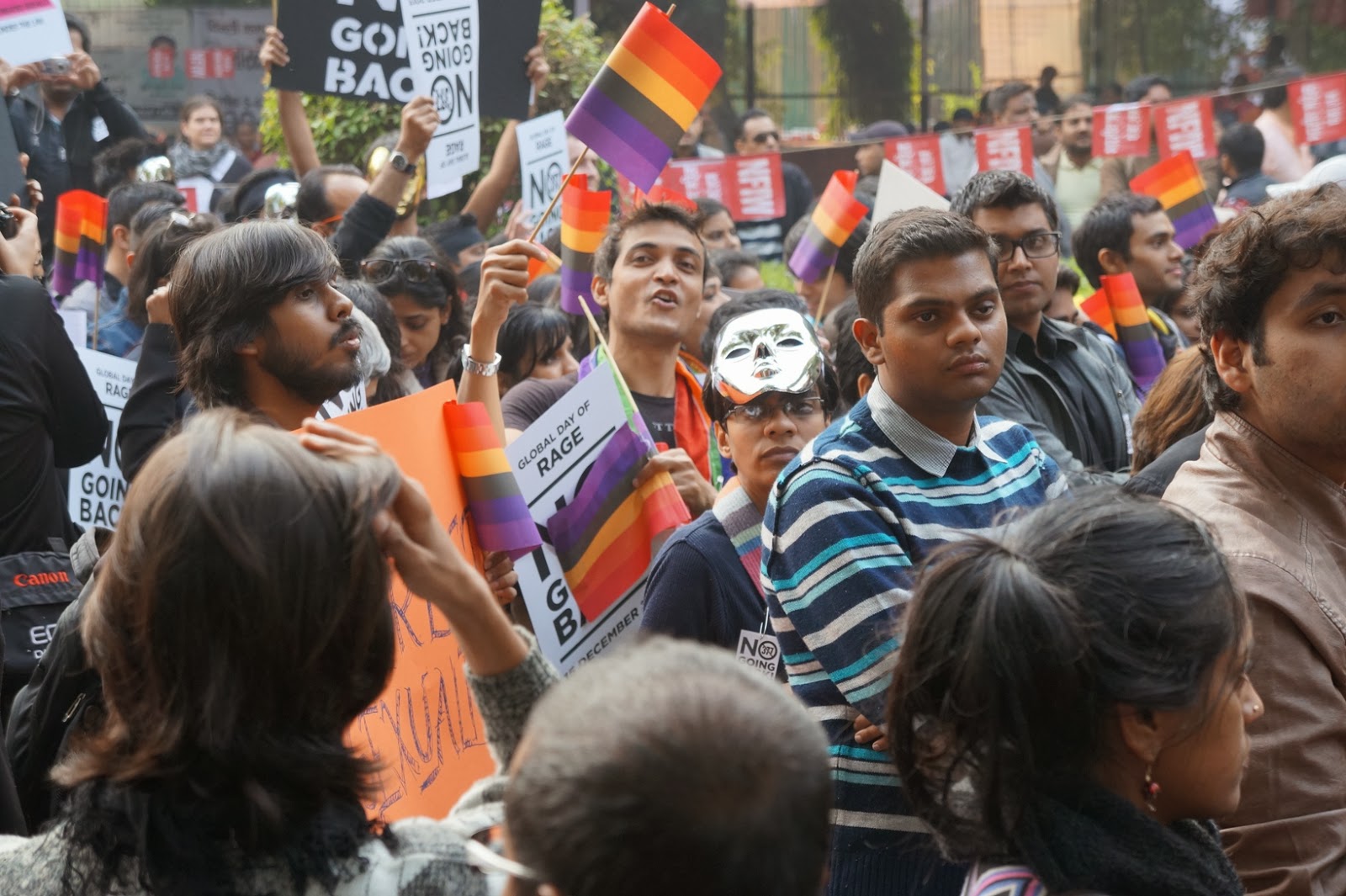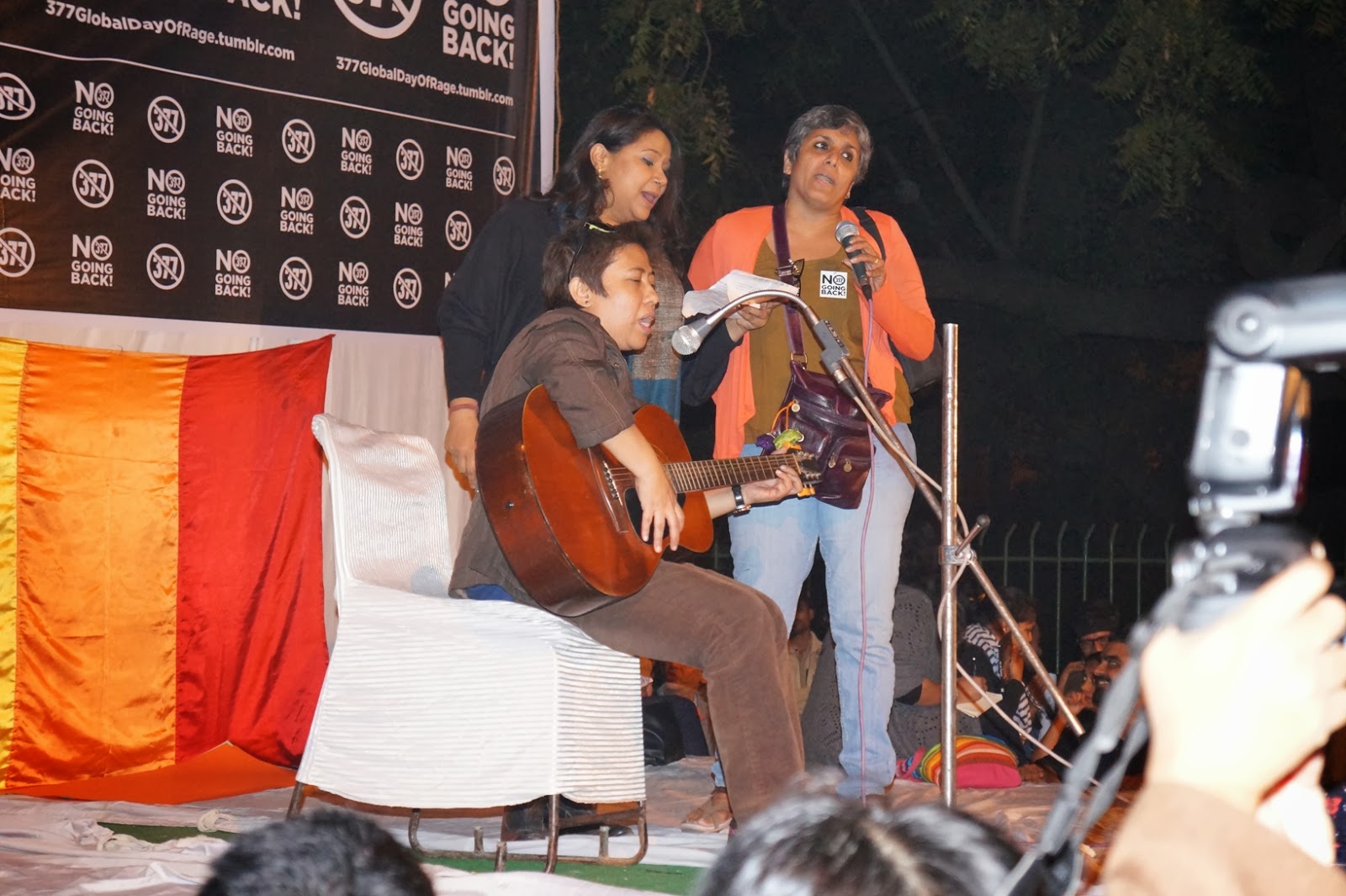Saturday, December 28, 2013
Friday, December 27, 2013
http://www.youtube.com/watch?v=m21_PBX0TCI&list=HL1388139717&feature=mh_lolz
Glimpses of the Global Day of Rage being observed at New Delhi on 15-12-13. 40 cities around the world joined in the protest against the December 11 verdict of India's Supreme Court criminalizing gay sex between consenting adults in India. LGBT activists protest against the verdict. See the scintillating performance on 'Pyar Kiya to Darna Kya' by Abheena Ahie and the very talented Maya Rao.
A great motivating speechs by 'Dadi' ( Sambhav's grandmother), an outspoken advocate of LGBT rights and a mother of a Lesbian person from Mumbai.
This video was shot by me on a Sony A 3000 full HD as an experiment. Edited by my colleague Jitender Kumar. Its the first video shot by me and the first edited by Jitender :)
Saturday, November 9, 2013
Ranjit Monga receiving award from
RIICO from Shri C K Mathew, Chief Secretary, Government of Rajasthan for
media and communication coordination during Vastra -2013, on behalf of IANS . In picture Shri Sunil Arora, Additional Chief Secretary, Industries, Govt of
Rajasthan, and Chairman RIICO ( Extreme Left) and Shri Naveen Mahajan, MD,
RIICO (Centre)
Tuesday, October 8, 2013
Media led Society
The
Media is the mainstay of society and in recent times it has become like a Giant
Screen in the sky which beams everything that goes on around us, minute to minute,
live. Nothing escapes its scrutiny. It is loud, it’s in your face and it’s
invading hitherto unexplored territory in its thirst for news and a few minutes
of live feed.
In
such a scenario it is easy as well as difficult to catch its attention. Easy,
when you have a controversial story to tell, or an opinion about a news item
currently on top of the agenda in society.
And
difficult, when you have a credible story to tell, but it is not in the ‘news’
and it is not served as ‘fast food’ to the media.
In
such a scenario, organisations plan elaborate ‘events’, get celebrity
endorsements and sometimes even offer
certain incentives to media houses to attract their attention.
The
corner stone for any organisation, especially one which works in the public
arena, is its credibility and its relationship which it builds with the society
in which it operates. It is therefore, very crucial for the organisation to be
seen in the proper perspective – with more stress on its work, its ideals and
its mission.
If your organisation, operates in such a context, it has a relationship with society,
which it serves.The only way, your wok can be projected or seen by society in the
proper perspective is, if there is no attempt at any unnecessary ‘projection’
as such. And when there is serious and
sustained interaction and the projection is only an outcome of that.
Monday, September 9, 2013
Wednesday, July 31, 2013
Time for transformation
We live in a time of great change. The change is seen not only in society, morality, polity and business areas but also the way we perceive the world around us, the way we communicate and relate to each other. Though we have more tools for communication and accessing information of the world around us, are we really taking the time to understand the turning points and transformation of over lives?
Some time ago, we all saw, on our TV sets devastation of the kind mankind had never seen, at least in living memory. The flooding of coastal areas of Japan by giant Tsunami waves. The live images of overturned ships and cars being carried by waves like matchboxes were traumatic to say the least. But soon afterwards as the news channels found a ‘new’ story to show, everything was forgotten. In our desire to return to normalcy and to move on to the next big story, are we missing out on some important reflection?
But the images are being repeated with an alarming frequency - the flash floods in Uttarakhand, in which perhaps tens of thousands if not lakhs of persons are still unaccounted for. And today's disturbing visuals - the washing away of a bus in the Bhakra river in Punjab, a motorbike on which two people were travelling being washed away while crossing a flooded river and tourists stranded because of floods at a picnic spot in Rajasthan are pointers that we need immediate reflection which may be crucial for our future. In this case, did we take out enough time to learn the lesions from the Tsunami and the flash floods about climate change, about pollution levels and green house gases and about disaster management? If we do, then we can find ways of preventing and responding to them in future.
Subscribe to:
Comments (Atom)



























